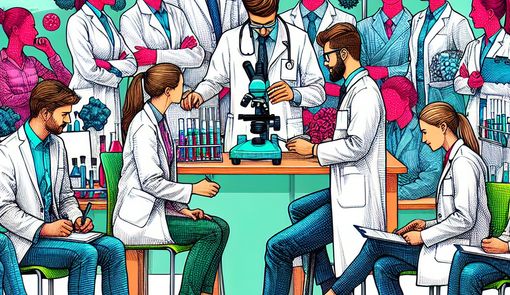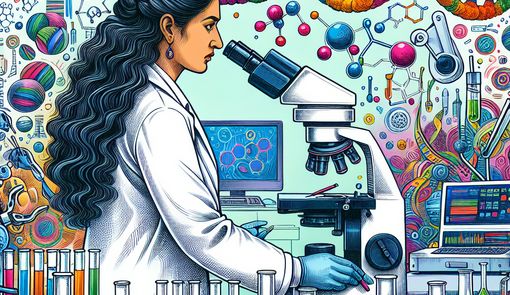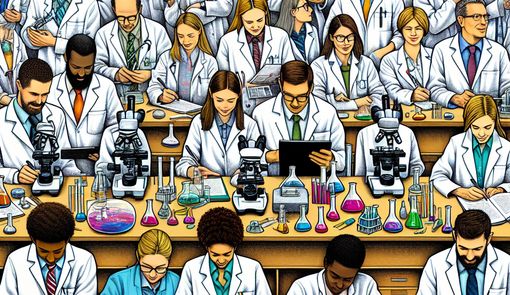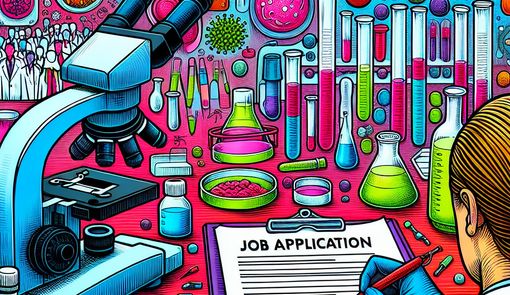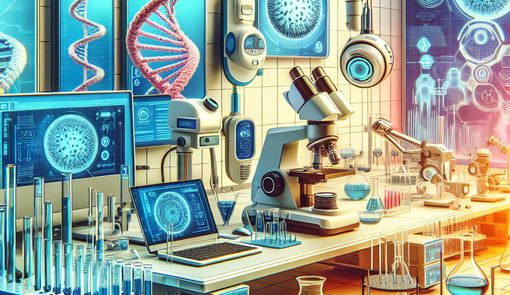Landing Your Dream Job: How to Become a Clinical Laboratory Scientist
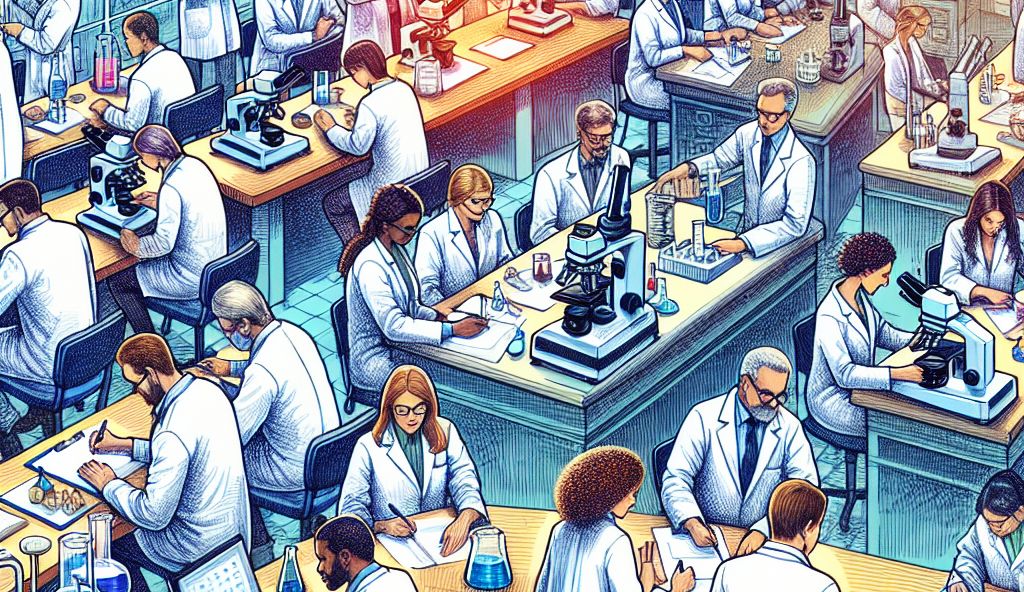
In the dynamic world of healthcare, one of the key players behind the scenes is the Clinical Laboratory Scientist (CLS). They are the individuals who conduct tests on biological samples that provide crucial information for diagnosing, treating, and monitoring diseases. If you're passionate about making a difference in the health sector and have a knack for science and precision, becoming a Clinical Laboratory Scientist could be your dream job. Here's how you can transform that dream into a reality.
Step 1: Understand the Role of a Clinical Laboratory Scientist
Before embarking on this career path, it is vital to fully understand what the job entails. Clinical Laboratory Scientists, also known as Medical Laboratory Scientists or Medical Technologists, work in various settings including hospitals, clinics, research labs, and pharmaceutical companies. They use sophisticated laboratory equipment like microscopes, cell counters, and automated analyzers to perform tests that range from simple blood glucose measurements to complex genetic analyses.
The work of a CLS is not only technical but also requires strict adherence to safety protocols and regulations to protect themselves and others from potentially infectious samples. They must also possess strong analytical skills to interpret results accurately and effectively communicate them to physicians.
Step 2: Educational Requirements
To become a Clinical Laboratory Scientist, you need to start with a solid educational foundation. A bachelor's degree in medical technology, clinical laboratory science, or a related field is typically required. These programs include courses in biology, chemistry, microbiology, immunology, and statistics, as well as specialized laboratory classes that are essential for a CLS's training.
Many institutions offer a Clinical Laboratory Science program that can be completed in four years, leading to a Bachelor of Science degree. The curriculum is designed to provide students with the theoretical knowledge and practical skills necessary for the clinical laboratory environment.
Step 3: Certification and Licensing
After completing your education, certification is the next step. While not all states require certification for employment, many employers prefer or even insist on certified candidates. Furthermore, some states have specific licensing requirements for Clinical Laboratory Scientists.
Certification can be obtained through various organizations including the American Society for Clinical Pathology (ASCP), the American Medical Technologists (AMT), and the National Credentialing Agency for Laboratory Personnel (NCA). The ASCP Board of Certification is one of the most widely recognized programs, offering the MLS (Medical Laboratory Scientist) certification.
To become certified, candidates generally must pass a comprehensive examination that evaluates their scientific knowledge and practical skills. Maintaining certification requires continuous professional development and education to stay up-to-date with best practices and new technologies.
Step 4: Gain Experience in the Field
Gaining relevant experience in the field is a crucial step toward becoming a Clinical Laboratory Scientist. Many educational programs include internships or clinical rotations as part of the curriculum, allowing students to gain hands-on experience.
Seek out opportunities to work in laboratories, whether through part-time work, internships, or volunteering. Experience in a clinical setting can familiarize you with the everyday duties of a CLS and give you invaluable insights into the workflow and challenges you may face.
Step 5: Develop Your Professional Network
Building a network of professionals within the field can open doors to job opportunities and provide mentorship. Attend industry conferences, join professional organizations like the ASCP, and connect with alumni from your program. Participating in online forums and social media groups related to clinical laboratory science can also expand your professional contacts.
Networking can also keep you informed about industry trends, continuing education opportunities, and job openings. Don't underestimate the power of a good recommendation from someone already working in the field.
Step 6: Prepare for the Job Market
With education, certification, experience, and a professional network in place, you are well-prepared for the job market. Create a strong resume that highlights your education, certification, experience, and any special skills pertinent to the laboratory setting. Practice your interview skills, focusing on both technical expertise and soft skills like communication and teamwork that are important in a collaborative environment like a clinical lab.
Step 7: Commit to Lifelong Learning
Healthcare is an ever-evolving field, and Clinical Laboratory Scientists must commit to ongoing learning to remain effective. This includes keeping up with the latest developments in laboratory techniques, technologies, and regulatory guidelines. Pursuing further education and specialized certifications can also enhance your career opportunities and earning potential.
Conclusion
Becoming a Clinical Laboratory Scientist is a rewarding journey that combines a passion for science with the satisfaction of contributing to patient care. By following these steps—attaining the right education and certification, gaining experience, networking, preparing for the job market, and committing to continual learning—you can successfully land your dream job in the clinical laboratory sciences. Remember, the journey is marked by dedication, precision, and a lifelong commitment to improving health outcomes through science.
Frequently Asked Questions
1. What is the role of a Clinical Laboratory Scientist?
A Clinical Laboratory Scientist (CLS), also known as a Medical Laboratory Scientist or Medical Technologist, is responsible for conducting tests on biological samples to provide essential information for diagnosing, treating, and monitoring diseases. They work in various settings such as hospitals, clinics, research labs, and pharmaceutical companies using sophisticated laboratory equipment.
2. What are the educational requirements to become a Clinical Laboratory Scientist?
To become a CLS, individuals typically need a bachelor's degree in medical technology, clinical laboratory science, or a related field. These programs include courses in biology, chemistry, microbiology, immunology, and statistics, along with specialized laboratory classes crucial for training.
3. Are certification and licensing necessary for Clinical Laboratory Scientists?
While not all states mandate certification for employment, many employers prefer certified candidates. Some states have specific licensing requirements. Certification can be obtained through organizations like ASCP, AMT, and NCA, with the ASCP offering the MLS certification.
4. How can one gain experience in the field as a Clinical Laboratory Scientist?
Relevant experience is gained through internships, clinical rotations, part-time work, or volunteering in laboratories. These opportunities provide hands-on experience and insights into the daily duties of a CLS.
5. What is the importance of building a professional network in the field?
Networking with professionals in the industry can lead to job opportunities, mentorship, and staying informed about trends and education opportunities. Joining professional organizations, attending conferences, and connecting with alumni are beneficial.
6. How should individuals prepare for the job market as a Clinical Laboratory Scientist?
Prepare a strong resume highlighting education, certification, experience, and relevant skills. Practice interview skills focusing on technical expertise and soft skills like communication and teamwork.
7. Why is lifelong learning important for Clinical Laboratory Scientists?
Healthcare is constantly evolving, requiring CLSs to stay updated on the latest laboratory techniques, technologies, and regulations. Continuing education and pursuing specialized certifications can enhance career opportunities and earning potential.
Further Resources
For those aspiring to become Clinical Laboratory Scientists, here are some valuable resources to enhance your knowledge and assist you in pursuing a successful career in the field:
- American Society for Clinical Pathology (ASCP): The ASCP is a leading organization in the field of pathology and laboratory medicine. Their website offers a wealth of information on certifications, education, and professional development opportunities for Clinical Laboratory Scientists.
- American Medical Technologists (AMT): AMT provides certification and continuing education resources for allied health professionals, including Medical Laboratory Scientists. Their website is a valuable source for certification requirements and exam preparation materials.
- National Credentialing Agency for Laboratory Personnel (NCA): The NCA offers certification programs for laboratory personnel, including Clinical Laboratory Scientists. Visit their website for detailed information on the certification process and requirements.
- Clinical Laboratory Science Programs: Explore accredited programs in Clinical Laboratory Science offered by various institutions. These programs provide a comprehensive education in medical technology and laboratory science, preparing students for a career as a CLS.
- Industry Conferences and Workshops: Attend industry conferences, workshops, and seminars to stay updated on the latest advancements in clinical laboratory science. Networking opportunities at these events can also help you connect with professionals in the field.
- Professional Journals and Publications: Subscribe to professional journals and publications specializing in laboratory medicine and clinical pathology. Stay informed about research findings, best practices, and emerging trends in the field.
- Online Forums and Communities: Join online forums and communities dedicated to clinical laboratory science. Engage with fellow professionals, seek advice, and share insights on topics relevant to the profession.
- Continuing Education Courses: Pursue continuing education courses to expand your knowledge and skills in specific areas of laboratory science. Many institutions and organizations offer online courses tailored for healthcare professionals.
- Job Search Platforms: Utilize job search platforms specializing in healthcare and laboratory science to explore job opportunities for Clinical Laboratory Scientists. Tailor your search criteria to find positions that match your qualifications and interests.
- Mentorship Programs: Seek mentorship opportunities within the field of clinical laboratory science. Experienced professionals can provide guidance, support, and valuable insights as you progress in your career.
Remember, continuous learning and professional development are key to excelling in the field of clinical laboratory science. Utilize these resources to stay informed, connected, and empowered on your journey to becoming a successful Clinical Laboratory Scientist.

